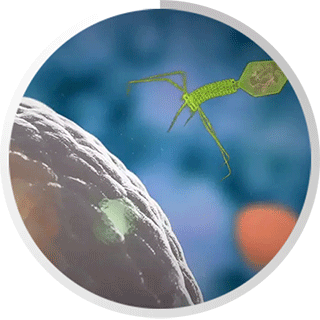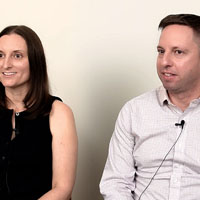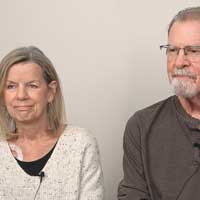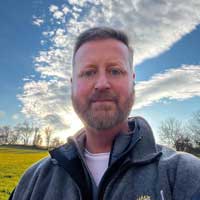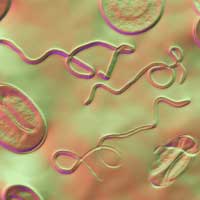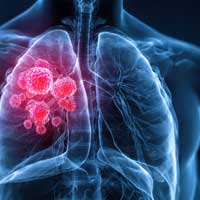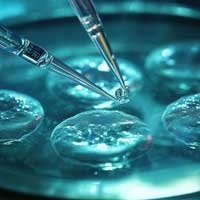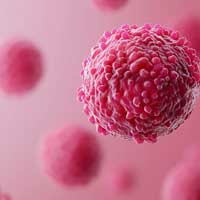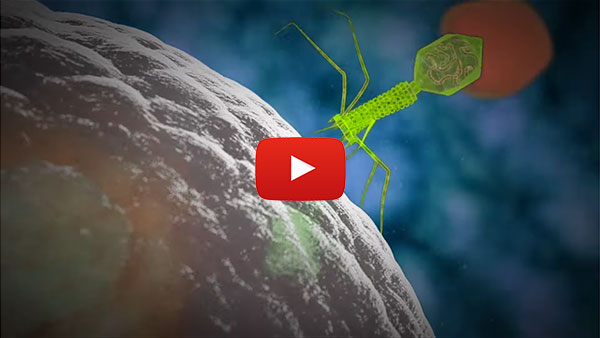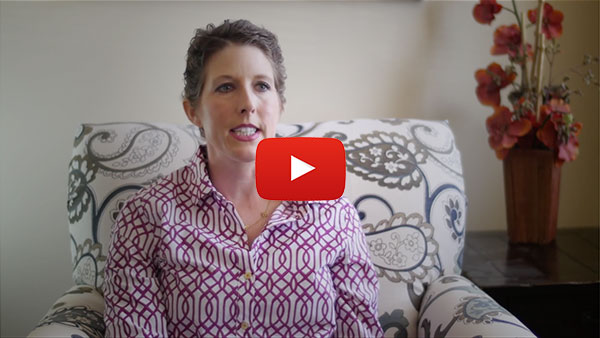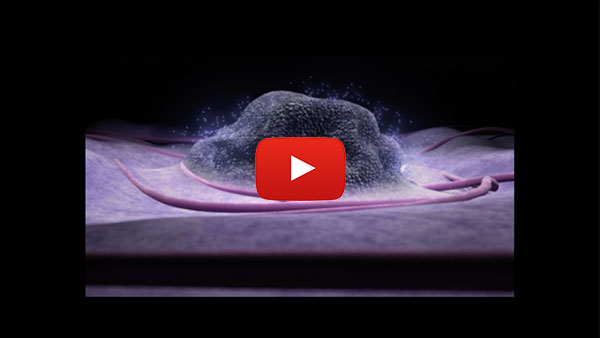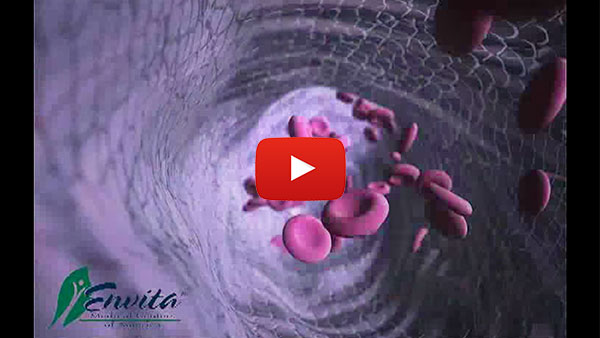Chemotherapy and Standard Cancer Treatments Are Failing Patients
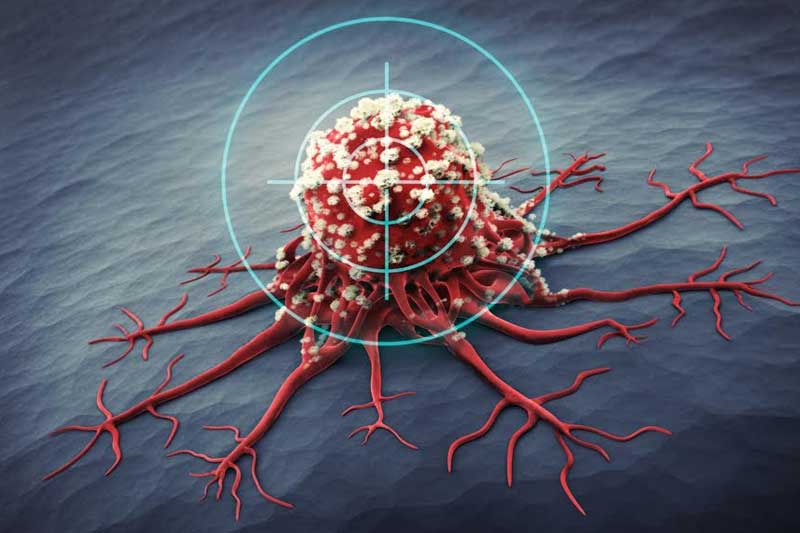
Over 15 years of specialization in late-stage and complex cancers has finally revealed the best strategies for doctors to bring forth better results with patients. This article aims to explain how to overcome the pitfalls of standardized cancer treatment, and how to compile an effective personalized treatment plan to promote profound healing and recovery. The path to healing is not just about standard chemotherapy, radiation, organic juicing, intravenous vitamin C, or some new oncolytic viral therapy, instead it's about finding the best targets for a cancer patient's specific cancer mutations and implementing the effective corresponding treatments correctly.
Disclaimer: Individual results will vary. Envita makes no guarantees for outcomes. Each patient case is unique. Please consult your doctor before making any changes to your medical treatment. Not every patient is a candidate for care or achieves these results. Treatments used in this case may not all be FDA approved for the treatment of this condition.
So why do so many patients reach the point of failing chemotherapy and standard cancer treatments? The answer is quite simple, the larger the cancer center or hospital the more the one-size-fits-all protocols are implemented. If a patient has a cancer type like breast, prostate, colon etc. a specific protocol (regimen from an algorithm textbook standard) is prescribed for treatment. The problem with this outdated model is that cancer is not, nor has it ever been a one-size-fits-all protocol disease. It is vitally important to understand that cancer is a disease of genetic cell mutations. These mutations are constantly changing and evolving which allows the cancer to evade treatment. There have been several published papers on this phenomenon and it has been lectured on extensively. The future of oncology is based on these genetic principles.
This article reviews several critical aspects of treatment to help patients discover their cancer blocks and make the much needed corrections to start responding powerfully.
The best modern oncology has to offer is based on three major tenants, genetics, proper targets, and blocking resistance.
- Cancer is a disease of mutations - Cancer is caused when cancer genes in our DNA get turned on. Mutations start to occur when this activation happens and cancerous cells grow uncontrollably. Chemotherapy is the normal course of action to combat these mutations, but it has been found that these mutations tend to greatly accelerate when chemotherapy regimens are prescribed. It is common to notice a response like 30% or more shrinkage of the tumors when chemotherapy is first administered, but oftentimes the cancer mutates and continues to grow rapidly while developing new resistances to the treatment. And if that was not enough, when the typical maximum therapeutic doses (highest doses of chemotherapy) are given it pushes these mutations even faster and it allows for the cancer to spread more invasively. Unfortunately, when chemotherapy is based on other people's protocols from clinical trials it is not necessarily a good match for each individual patient.
- Natural and Alternative treatments, to a lesser extent, possess many of the same problems chemotherapy exhibits. The treatments selected must be based on the patient's individual cancer mutations and not from a generalized intravenous vitamin C protocol or organic juicing protocol. The one advantage of natural treatments is that (even if they don't hit the genetic targets) they can oftentimes improve the patient's quality of life from other mechanisms of action. However, when natural and alternative treatments are matched to the genetic targets a natural chemotherapeutic benefit can often be seen and work alongside other treatments. Some patients may respond to treatment (whether natural or conventional) while other patients don't respond at all because of the constant mutations that are taking place in the cancer cells. Fortunately, there is a way (through specialized testing) to take the guess work out of treatment selection. With the correct integrative approach, treatment can be quantified and compared to see which chemotherapies and/or natural agents may work best for each individual patient's genetic cancer cell mutations leading to more effective results.
- MDR (multi-drug resistance) must be effectively stopped. Multi-drug resistance is often the result of maximum therapeutic dosed chemotherapy. To understand multi-drug resistance, it is important to know that cancer cells contain specialized pumps (P-glycoprotein pumps) along their surface that work to push out chemotherapy and natural treatments that would otherwise attack the cancerous cells. MDR brings about numerous cancer treatment failures, but when MDR is effectively blocked, the chemotherapy and other agents can complete their job of killing off the cancer cells. The activation of this pump is directly related to the dosing of chemotherapy. When maximum therapeutic doses of 2-3 chemotherapy drugs are used, the toxicity levels are so high that is causes the Pgp-pump to push out the medication faster and block the effectiveness of chemotherapy altogether. It is essential to block the multi-drug resistance and stop the Pgp-pumps to allow patients to achieve successful treatment. When a MDR blocker is put in place, a much smaller dose of chemotherapy (with far fewer side effects) can be used much more effectively. Most late stage cancer patients have MDR resistance which needs to be tested for and properly treated for successful outcomes.
- Oncogene Silencing and Cancer Stem Cells - To deactivate cancer and prevent cancer stem cells from returning, the genes must be silenced. All cancers are caused by DNA mutations and these changes relay information within the cell to make proteins that develop the characteristics of the cancer. Technology can be used to help silence these genes. Though not available in the United States and not FDA approved for cancer treatment, this technology is available in other parts of the world and has proven results. Once genetic targets for genes are found, treatments can be put into place to aim at silencing the genes. Oncogene silencing utilizes a completely alternative method to chemotherapy and does not require the use of chemotherapy to take effect. In patients with poor responses to chemotherapy where there are no good drug targets direct silencing of the genes may help. Most patient are unaware of their options when it comes to cancer care. Oncogene silencing is just one of many critical aspects to cancer care that needs to be properly addressed for patients.
- IMX - Immunotherapy Treatments for Cancer - After decades of research from some of the top cancer institutions in the world, immunotherapy is finally moving to the forefront of cancer care to help patients with late stage and complex cancers. Immunotherapy is enacting the immune system to fight and eliminate cancerous cells and tumors. The advantage to using the immune system to treat cancer is in its innate ability to eliminate active cancer cells as well as dominant metastatic cancer cells. The key to effectively utilizing this advanced treatment is based around the ability to target the immune system to the cancer cells so they cannot evade treatment. Immunotherapy is highly effective because of its ability to attack cancers that can be seen on PET scans as well as cancer cells too small to be noticed with traditional imaging. Unfortunately, these cancer treatments are not traditionally available to cancer patients because most immunotherapies have not had the time to go through FDA approval. Treatments such as oncolytic viruses, genetically modified dendritic cell therapy, natural killer cell therapy, T-cell therapy, and checkpoint inhibitors are all becoming the primary focus of cancer documentaries and will become part of the standard of treatment over the next decade in oncology. Fortunately, international integrative cancer centers are utilizing these immunotherapy options.
- GTFC™ Cancer Treatment - GTFC™ (genetically targeted fractionated chemotherapy) is a new cancer treatment that has been successfully used to help patients where other forms of chemotherapy fail. GTFC™ is a form of low dose, fractionated chemotherapy that can hit up to 7-10 genetic markers based on real-time mutation testing, something traditional standard chemotherapy cannot do. GTFC™ also ensures that the majority of patients experience minimal side effects due to the utilization of metronomic/low dosing. The minimal dosing works to prevent multi-drug resistance as well. Here is how it works: Current genetic information is collected through a real-time blood test, not simply from old biopsy tissue. This real-time information allows the doctors to review what the patient's cancer genetics are most likely going to respond to today, not what they would have responded to 6 months ago when the biopsy was originally performed. The real key and revolutionary approach here lies not only with the best drug options but also with the best natural phytotherapeutics to help enhance overall care. Targeted natural therapies are oftentimes shown to help and enhance patient care alongside chemotherapeutic targets. The best part about these natural therapies working in tandem with chemotherapeutic agents is that often times side effects are greatly reduced and less toxins are being placed in the body, leading to patients to live their lives without being riddled with sickness from the treatment.
These are several important powerful options most cancer patients never become informed about. We hope this article has helped you learn about cancer treatment options and has provided you with knowledge about what should be addressed in your, or a loved one's cancer treatment. If you have any questions about your own cancer treatment options or about this article, please reach out to us. We are here to help you.
Disclaimer: Some of the treatments mentioned (like IMX) in the above article are not all available in the US and are not FDA approved for the treatment or diagnosis of cancer. Patients should consult with their doctors before undergoing treatment or altering medical care. Envita Mexico is under Mexican law and jurisdiction and in no way does Envita make guarantees or claims of any outcomes for this or any treatment. In cancer treatment, individual results will vary and outcomes should not be expected. The information above is for education purposes only. Not all patient are candidates for IMX or immunotherapies and should consult their doctors.


